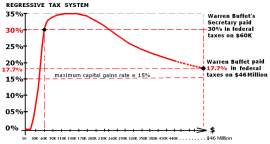
What You Didn't Know About Cyclical Taxes

Cyclical taxes are paid throughout the tax year, rather than the years end. For example, most states impose property taxes on a cyclical schedule. For example, some property taxes may be due every three months, so that property owners contribute to their taxes every quarter.
Income taxes are also cyclical taxes as employees pay those taxes every pay period, regardless of how often they get paid. So each employees tax cycle will differ based on their pay schedule. Income tax estimates are divided based on that pay schedule and an the estimated tax burden is paid each pay cycle. Employers also contribute to payroll taxes on a cyclical schedule.
The government has claimed that a cyclical cycle for taxes can help taxpayers to avoid being unable to meet their tax burden at the end of the year. For example, an employee that makes forty thousand dollars, will have an income tax responsibility estimate determined by their employer. That estimate will then be divided by the number or pay periods and payments will be made towards that tax burden on a cyclical schedule.
There is of course, no guarantee that the estimate will be correct. After an employee files their income taxes, they may find that they are due a refund of that they owe additional monies to cover their income tax burden. This is in fact, one of the reasons that many taxpayers are against the manner in which taxes are collected. While the government has tax payments in advance, they are able to use that money any way they see fit, including collecting interest on that money.
In the hands of the taxpayer, cyclical taxes could also collect interest, which could theoretically be use to pay for the added tax burden. In addition, taxpayers that are owed a refund by the government do not get interest on the money that the government held. In other words, tax refunds do not include any interest on over payments. If however, taxpayers can not immediately cover any additional necessary tax payments, they incur late fees, penalties and interest payments in addition to the taxes owed.
While many taxpayers are against cyclical taxes because of the possible loss of interest, payroll taxes are required to be taken out of paychecks throughout the year. Even the savvy taxpayer is unable to utilize monies that will later pay taxes, in order to invest or make interest. The law requires that employers take out these taxes throughout the year. Most taxes are in fact collected this way.
NEXT: Non-Cyclical Taxes at a Glance




















